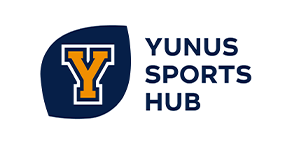For more than 15 years, Adwa has led dozens of initiatives to help drive and develop the sport sector as well as playing a key role in mass participation across the Kingdom. Her early work included helping to establish the Kingdom’s first women’s football team in 2007 and founding the Riyadh Women’s Football League in 2008. Her continued to support the growth of football becoming the first ever female board member of the Saudi Arabian Football Federation in 2019.In 2022, in addition to her role as Deputy Minister of Strategic Planning & Investment, she was appointed as Assistant Minister of Sport Affairs. In this role, she oversees and delivers on all international events, stadia, sport & youth affairs and MOS branches around the kingdom. In addition to delivery of high-profile special projects, Adwa has also grown the Department of Strategic Planning, enabling delivery of the National Sport Strategy.
ShapingFootball'sFutureinSaudiArabia
WFS Asia KEY FIGURES
Saudi Arabia is ready to become the new home of football
Attendees
Speakers
Clubs, Leagues & Federations
Media
Countries
Full Days of Networking
WFS Asia Leading Voices
World Football Summit welcomes the leaders driving change in football
-
Adwa Al Arifi
Assistant Minister for Sport Affairs at Ministry of Sport - KSA
-
Prof. Muhammad Yunus
Co-Founder - Yunus Sports Hub
-
Lamia Bahaian
Vice President - Saudi Arabian Football Federation
-
Windsor Paul John
General Secretary - Asian Football Confederation
-
Ornella Desiree Bellia
Director of Professional Football Relations & Development - FIFA
-
Tony Douglas
CEO - Riyadh Air
-
Miguel Ángel Gil Marín
CEO - Atlético de Madrid
-
Michael Emenalo
Chief Football Executive - Roshn Saudi League
-
Monika Staab
Women's Football Technical Director - SAFF
-
Ralf Reichert
CEO - Esports World Cup
-
Dr. Nadia Nadim
Football Player and UNESCO Ambassador – Racing Louisville FC & Denmark
-
Hammad Albalawi
Advisor - Saudi Arabia 2034 FIFA World Cup Bid
-
Clarence Seedorf
Ambassador - Lega Serie A
-
Ibrahim Mohtaseb
Vice President - Sela
-
Carlo Nohra
Chief Operating Officer - Roshn Saudi League
-
Guido Fienga
CEO - Al Nassr
Essential Information
Welcoming Leading Brands
Connecting properties, brands and talent to drive sustainable growth
DRIVING GROWTH IN THE FOOTBALL INDUSTRY














